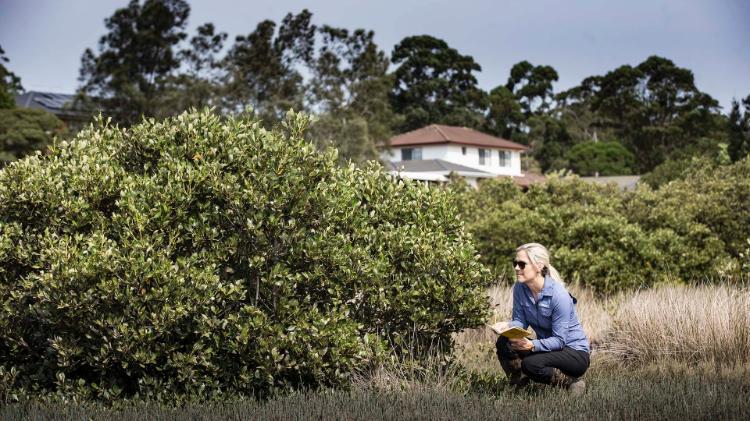Case studies
Their research published in Nature, ‘Widespread retreat of coastal habitat is likely at warming levels above 1.5 °C’ warns that coastal habitats such as mangroves, tidal marshes and reefs are in severe danger from rising sea levels and climbing temperatures.
They looked at historical evidence of sea-level rise at the end of the last Ice Age around 17,000 years ago and found a rapid rise in sea levels had a devastating effect on coastal habitats and recovery took thousands of years. The planet is at risk of a similar rise in sea levels again if warming levels rise above Paris Agreement targets of 1.5 – 2.0 degrees Celsius.
Professor Rogers warns we are at a decision-making precipice; if we do not take urgent action to mitigate climate change, the capacity for coastal ecosystems to adapt to warming greater than two degrees will be limited. This will have potentially devastating impacts on the extent of coastal ecosystems and the benefits that they provide to humans, including coastal protection, fisheries and wildlife habitat, nutrient cycling, carbon storage and tourism activities.

- SDG 13 – Climate Action
- SDG 14 – Life Below Water
- SDG 15 – Life on Land
- SDG 17 – Partnerships for the Goals
Discover the urgent need for action to protect our coastlines
















